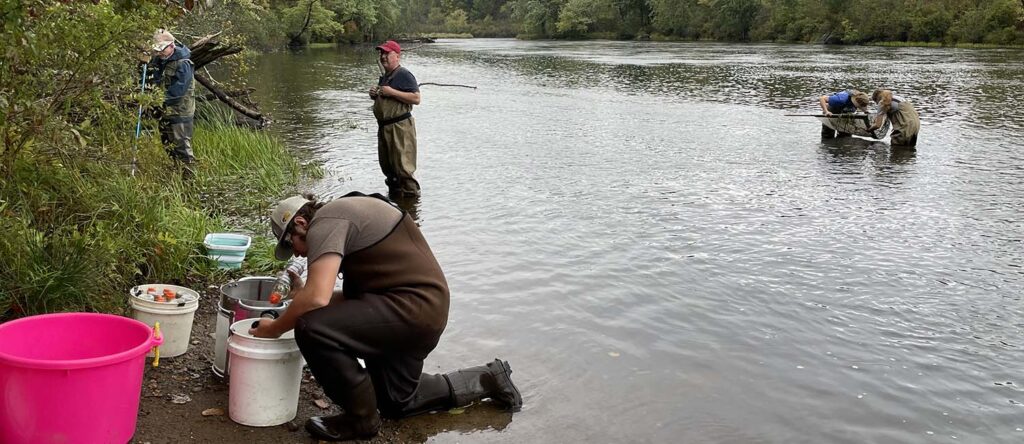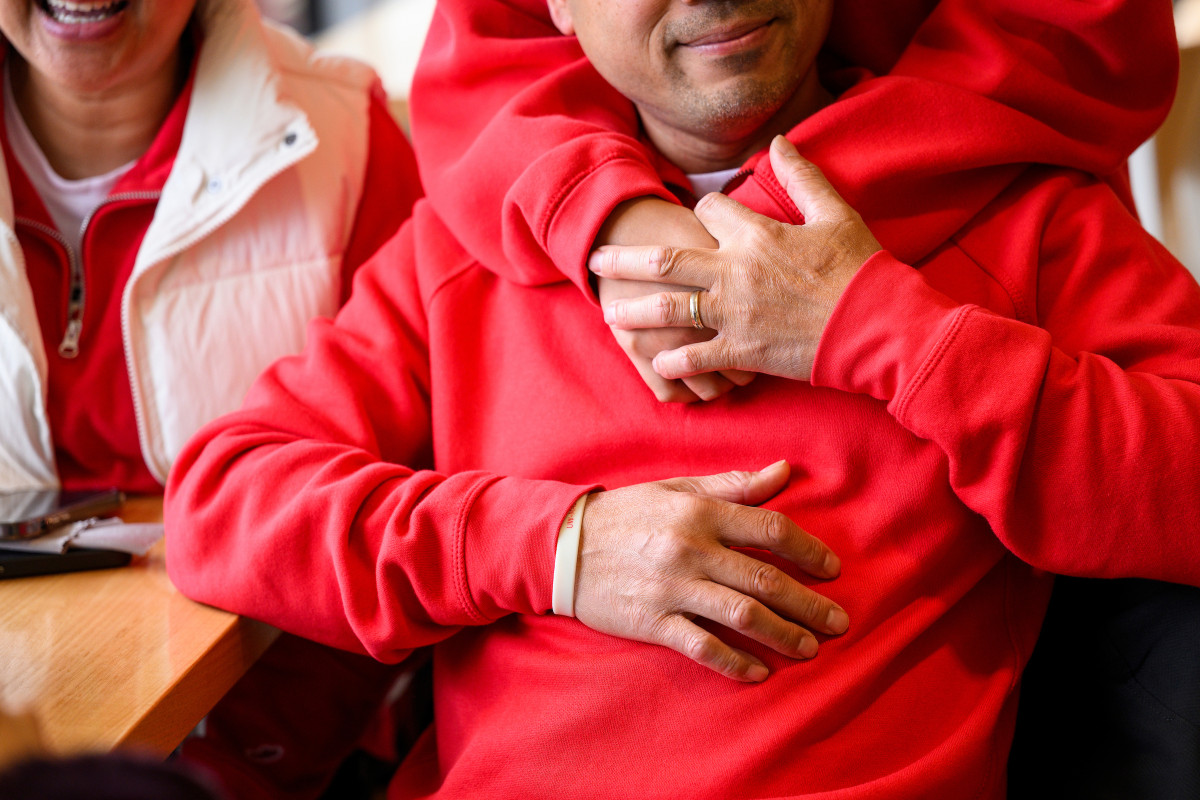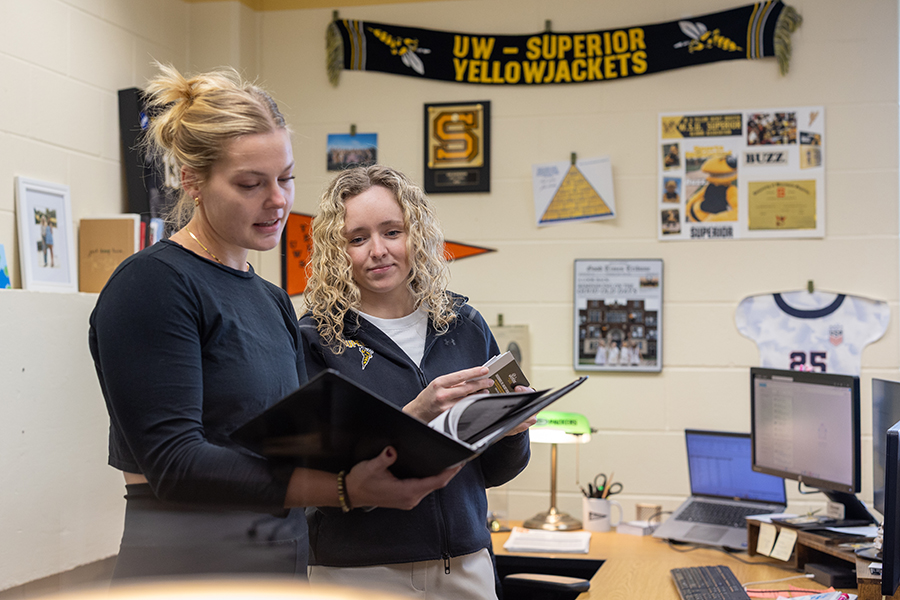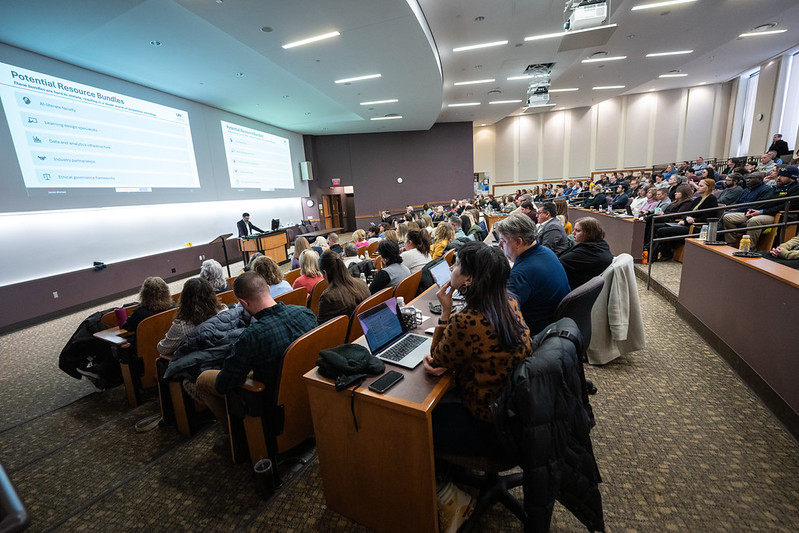
Andrew Malacara raves about “Bug Camp,” the informal name for training workshops that are part of a new project funded by the Freshwater Collaborative of Wisconsin.
Malacara is one of six students from UW-Parkside, UW-Stevens Point and UW-Madison who are participating in BenthicNet. The training program includes experts from the three universities as well as the Milwaukee Public Museum. They aim to expand access to collections of insects and other invertebrates that are used for biomonitoring.
Biomonitoring is the practice of analyzing changes in the numbers and types of benthic macroinvertebrates to assess water health/quality. Biomonitoring tools first developed in Wisconsin are now used globally.
Each of the institutions involved has a reference collection of benthic specimens gathered over decades. The collections hold a wealth of historical knowledge that most people, even researchers, aren’t aware exists.

Increasing Accessibility to Valuable Resources
Jessica Orlofske, an associate professor at UW-Parkside, envisioned BenthicNet to make the collections more accessible and to train students in collection and preservation techniques. Over the next year, students and faculty will create an online digital database that includes all the collections. The long-term goal is a resource that allows anyone in the state or the world to access the data. The database will be particularly useful for the Wisconsin Department of Natural Resources and for community science participants.
“Regulatory agencies, such as the WDNR, can use the information to designate certain rivers for particular management practices and to prioritize their water quality sampling,” says Orlofske, who leads the project. “We are making the data they collect more informative and accessible, so they can answer questions about long-term trends.”
In addition to digitizing existing collections, students are learning how to collect and preserve new specimens. Throughout the academic year, students will participate in four hands-on weekend training workshops. The first took place at Treehaven, a public nonprofit field station operated by UW-Stevens Point. Additional workshops will take place on the UW-Madison and UW-Stevens Point campuses and at the Milwaukee Public Museum.
Finding Community One Bug at a Time
For Malacara, the experience thus far has been wildly fun and extremely beneficial to his career goals. He is majoring in applied mathematics and general biology and has a keen interest in entomology, the study of bugs.
His goal for the first workshop was to find a stonefly, an aquatic insect not well represented in the current specimen collections. He and Cole Kupsch, a UW-Madison student, found the first of many while surveying the Wisconsin River.
“We were a distance away from everyone, but I screamed at the top of my lungs, ‘We found a stonefly,’ unable to hold my excitement,” Malacara says. He adds that the best part of working with the other campuses has been finding people who share similar interests and passion.
Skylar Johnston, a graduate student from UW-Parkside, agrees. She is interested in museum work and joined BenthicNet to expand her understanding of collecting, identifying and processing aquatic specimens. Connecting with others who share her enthusiasm has been a huge plus.
“I have loved watching everyone become thrilled when they find certain macroinvertebrates in their samples. It was doubly exciting for me to hear everyone else just as excited as I was to find someone new or big in their nets — and even better getting to see the bugs they found,” she says. “I learned so much in just one weekend!”

natural resources manager training center
run by UW-Stevens Point.
Training a New Generation
Seeing such enthusiasm about entomology brings Orlofske tremendous joy. She notes that although Wisconsin was once the leader in biomonitoring, many laboratory specialists are nearing retirement age. By training a new generation, Orlofske hopes to contribute to a resurgence of expertise in Wisconsin — and for experts in other parts of the country to once again see Wisconsin as a leader in this type of water quality research.
“Bugs are a gateway to studying other aspects of freshwater. They can lead to jobs that little kids dream of doing, but students often don’t know these are real jobs,” she says. “This work expands their appreciation of careers that involve water or bugs.”
Read more about the students in Student Q&A: BenthicNet
Written by Heidi Jeter, Freshwater Collaborative of Wisconsin
Link to original story: https://freshwater.wisconsin.edu/benthicnet-biomonitoring/


